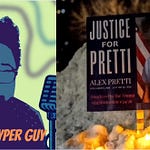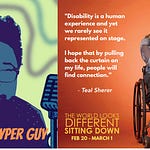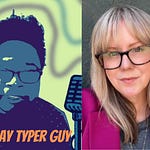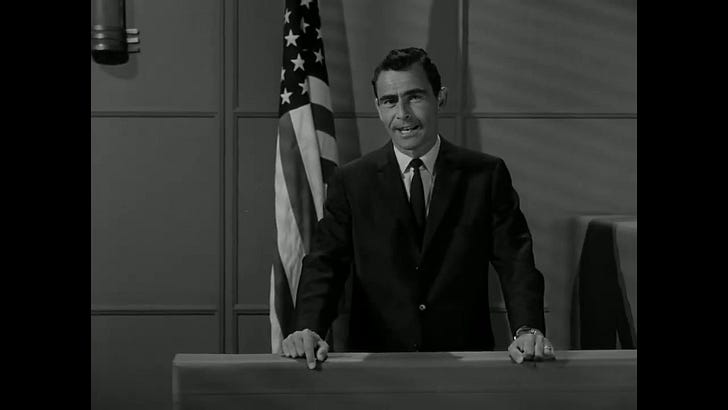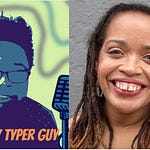Donald Trump declared on Thursday that Gaza should be “turned over to the United States by Israel” once the war ends. He’s proposed “developing” the Gaza strip and suggested on social media that Palestinians could be “resettled in far safer and more beautiful communities, with new and modern homes, in the region.”
Trump’s ethnic-cleansing solution is predictable but still terrifying. Unfortunately, far too many Democrats think it’s fun to point and laugh at any Muslims or Palestinians who criticized the Biden/Harris administration’s position on the Israel-Hamas war in Gaza.
Gloating over human misery is rarely justified, but not everyone who took issues with the Gaza war went around chanting the reductive “Genocide Joe” or “Holocaust Harris.”
Last August, I had the opportunity to speak with Georgia state Rep. Ruwa Romman. This was not long after Joe Biden withdrew from the race and Kamala Harris replaced him as the Democratic nominee. She was upbeat about the party’s chances with Harris at the top of the ticket, as we all were in what now seems like both a distant past and an alternate reality.
Rep. Romman made history in 2022 as the first known Muslim woman elected to the Georgia House of Representatives. The granddaughter of Palestinian refugees, she’s also the first Palestinian-American elected to any office in the state. Romman made news last summer when she was refused a speaking slot at the Democratic National Convention. Despite the emerging narrative, Romman had no intention of bashing Democrats, Harris, or the Biden administration during her speech. She unequivocally endorsed Harris and told Teen Vogue, “I approach voting as a strategic conversation more than a moral one.” I agree, which I was personally never uncommitted — just very concerned about U.S. policy.
The “uncommitted” movement has become somewhat of a scapegoat for Harris’s loss in the Rust Belt, especially in Michigan. However, voting uncommitted during an uncontested primary was an expression of protest that didn’t preclude voting for the Democratic nominee against Trump, as Romman did. The Hispanic population, which Trump won outright, is also three times larger than Muslims in Michigan.
Unfortunately, I think there are people who consider any criticism of Democrats, especially Biden, as tacit support for Trump/MAGA. That’s not how I define “democracy,” and I hope people will take the time to consider Romman’s unique perspective.
Edited excerpts from our conversation below:
SER: I know one argument I kept seeing was that whatever Biden’s empathy gap that you refer to, it was not as bad as Trump.
Trump would definitely [tell Israel], “Do whatever you want, raze [Gaza.]”
He has no concern about Palestinian people and the argument there being that those are the options. So that almost took it off the table. In other words, it’s obviously better with Biden so now let’s just focus on other issues like abortion rights and so forth.
Was that not compelling, I presume, to a lot of [pro-Palestinian] voters? And could you explain why, perhaps?
REP: ROMMAN: Yeah, not even a little bit, because remember, if you yourself didn't lose family members, you knew someone who did, whether you’re Palestinian or just an ally or just somebody who organizes in these coalitions and spaces.
I know so many people, but one of them, she works with the Arab Americans for Biden group, helped fundraise millions of dollars for him in 2020. She has lost over 80 family members. This is very real for people. And I had nothing to say to her because the president would come out and say the death toll is made up. He would repeat like hoaxes that were coming out of Israeli rightwing media, during the 100-day statement refused to even mention the suffering of Palestinians. Any time he spoke about Palestinians, it was Hamas.
Part of the reason people became so entrenched and angry is there even in just words alone, there was no empathy until the very, very, very end.
And even then it took the uncommitted movement. It took so many things for him to go, wait a minute, I think too many people are dying and we should stop this. And even then refusing to use any of the tools to apply pressure.
To be clear, again, like I said at the beginning, Trump is worse. There is no denying that. But the difference for somebody who’s specifically Palestinian, I want to be very clear, for someone who’s specifically Palestinian or very, very attached to this, the question then became, “Well, if I have no chance of saving anybody that I love, what even is the point?”
Then they fell into this nihilism and depression, which is a totally normal human emotion, right? It is totally normal for somebody to say, “I have to make this decision for the betterment of my family or whatever.” And it is also very normal to say, “What’s the point of me making this decision if it still means somebody I love is still going to die because of weapons that I’m paying for with my tax dollars?”
I hope people would learn a little bit more empathy here because I think we’re all working from a place of fear and frankly trauma. And sometimes that brings out the worst in us.
Growing Up Palestinian In Georgia
SER: This is a pretty intense time for someone of your background. Not that it was always candy and ice cream, but can you speak to what it was like, coming to Georgia as an immigrant and growing up in the state as it was changing and eventually running for office?
REP. ROMMAN: When I think about my identity and how I got here, I always remind people that both sets of my grandparents were born in Palestine. That was all they knew. They were forcibly and violently exiled from their homes.
In fact, three of my four grandparents have now passed away without ever seeing their homes again. So personally for me, even before politics, before everything, that was the first piece of my identity that I became very, very aware of, if that makes sense.
I also felt a responsibility. It was funny because my parents were always worried about us being Palestinian kids, especially in Forsyth. I remember my dad would [say], “Don’t tell people you’re Palestinian,” and of course, when my parents tell me not to do something, I immediately do it. So one day we were in [driver’s ed] class and somebody had asked, “Oh, I heard you’re Palestinian.” I said yes, and the teacher had overheard. He pulled me out in the hallway, and I was 16 or 17 at the time. [SER: This would’ve been 2009/2010.]
He proceeded to interrogate me because he wanted to make sure I didn’t have any ties to the terrorist group Hamas. That was his phrasing. He [said], “Just got to make sure y'all are good.” I remember literally laughing because I thought it was a joke. It was so absurd, but it really colored me [and] how I approached the world because it forced me to recognize a few things: One, how unjust the world is and how unjust we can be to each other. But also, too, that we can never stop trying to bring justice for everybody. The reality is that it forced me to look around a room every time I was in a room and ask myself, “Who is not here?”
Lessons from her grandfather
REP. ROMMAN: I tell people all the time that my grandfather taught us a few things. One of the most fundamental is that there is no homeland and there is no holy land without the Jews, the Christians, the Muslims and the Druze, right?
That was the world he grew up in. If you talk to Palestinians of that generation universally — truly universally — I remember I got to go for two weeks in 2019 and every person I spoke to from his generation, it was almost like you were watching a tape rerun over and over and over again but my grandfather's never met some of those people. It didn't matter if I was talking to a Christian person or a Muslim person they all said the same thing. Of course, it's not a utopia, to be clear when people are in the majority they can be not great but at the same time the experience that my grandfather instilled in us and the policies were that this is meant to be a land for everybody.
I remember the one thing that he one time said to me. He said, “I didn’t even think about the soldier’s faith who kicked me out of my home.” That was never a thing that crossed his mind. What crossed his mind was “Why is this happening to me? Why are you doing this to me? And am I ever going to get to come back?” And unfortunately the answer for him was no.




